How to “critique” a painting (the useful way)
If you’re keen to improve your painting skills, you’ll often hear that you need to regularly “critique” your work.
Or worse, get someone else to.
Does that bring out the heebie-jeebies in you?
It always has for me.
But the truth is, identifying how to improve your own work, or receiving pointers on how to from others is invaluable to your own development.
And if you’re part of an art class, or an online school, you might find that you need to give a “critique” in exchange for a “critique”.
So how can we go about “critiquing” in a way that actually motivates us, or whoever’s work we’re critiquing, to improve?
You might think that there should be two different approaches – one for when you’re looking at your own paintings and one for when you’re going to be delivering a critique to another person.
Wrong! We should take the same approach to both: we need to strike the right balance.
Here are my tips for how to do this:
1) Drop the C-word
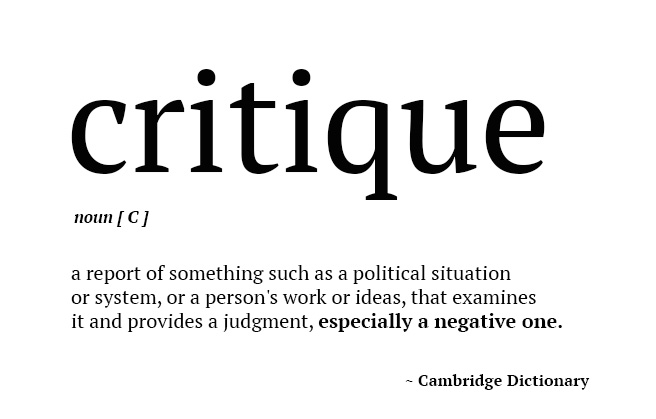
I hate the word “critique”.
It’s just too close to the words “critic” or “criticise”.
Crit-Eeek!!
It always sounds like an open invitation to have someone be mean to your work. And, by extension, that means being mean to you. Because your work is soooo personal, right?
If it’s taken you a long time to reach the point where you’re beginning to nurture the inner artist you’ve previously neglected, you’re especially vulnerable.
And if you’re someone who also has a rather-too-vocal inner critic (which I’ve noticed often goes hand in hand with having waited a long time to honor your creativity), receiving a “critique”, or deciding to give yourself one, can be a recipe for shoving the paints back in the cupboard and leaving them there.
So how about we drop the c-word altogether and use appraise instead:
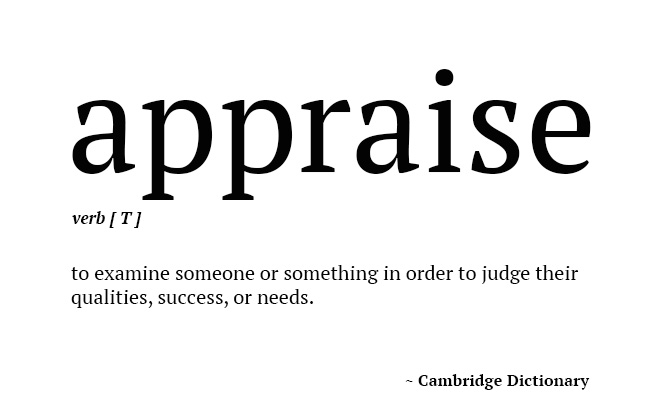
The word appraise then, includes the word praise, and that’s exactly what we need to remember to include when appraising our own paintings or those of others.
Also it makes me want to ?.
2) Make a sh*t sandwich
To appraise a painting well, we need to identify what is working, as well as what needs doing differently.
In fact, when I talk about BALANCED appraisals, I actually think this works best when the balance is tipped a little in the favour of the positives. We’re all motivated by praise and encouragement. As children we certainly are, and just because our driving licence says we’re no longer a kid, it doesn’t mean the way we’re motivated has changed much.
So, I recommend that you think of appraising a painting (of your own work, or another’s) like assembling a “sh*t sandwich”. That is:
- Find a positive (the bottom slice of bread)
- Find an area or 2 for development (the sh*t!)
- Find another positive (the top slice bread)
Keep the ratio even, or biased towards the bread! Start with a positive, and end with one.
To stay motivated it is vital that we recognise the positives we have achieved. And it’s also really important that we don’t over-focus on the negatives because, as I looked at in this post, our minds are hard-wired to do just that.
3) What to look for
There are loads of things you can look for when you’re appraising a painting, and to give you a guide, here’s a list of what I use to appraise paintings completed in my realistic style.
Remember, there is a huge subjectivity involved in viewing a painting, but if you are aiming for a realistic look to your work then there’s a bit more objectivity involved as we usually know what it should look like.
This is a big list, but to avoid over-thinking (important as we want to be responding from right-brain ideally), the best approach is to focus only on the main things that jump out at you about a painting.
Before you start:
Get some distance
Look at the work close up and from a distance if you can.
If it’s your own work and you’ve been looking at it closely for some time, now look at it from the other side of the room. If you’re still working on it or have recently finished, also allow some time to pass before appraising it, so that you can see it with fresh eyes.
Keep it to this one piece of work
Avoid using generalisations and keep the appraisal really specific to the piece of work you’re appraising.
Things to consider:
Overall look
- Does the painting look finished?
- Is there ‘unity’ in the painting, does everything tie together well?
- Does the composition work? Does it fit well on the page?
- Does the whole painting ‘pop’ off the paper?
- Where is your eye drawn to?
Subject representation
- Is the subject easily recognisable?
- Does the subject look true to life?
- Does the subject look three-dimensional?
- Do the colours look believable?
- Are the colours vibrant?
Values
- Does the painting use a range of tonal values to create contrast?
- Do the values used provide depth?
- Are there highlights to represent the light and show form?
- Are the dark areas dark enough?
- Do the midtones unite the light and dark values well?
Brush technique
- Have realistic visual textures been achieved?
- Are the brushstrokes ‘painterly’ and identifiable as brushstrokes, or hidden to create a realistic look?
- How neat and crisp are the subject’s edges?
- Are any straight lines straight enough?
- Has a light touch been used to capture detail where it’s needed?
4) Hone your appraisal skills
What if you’re trying to appraise a painting and you just can’t see what’s working and what’s not?
Don’t expect to be able to do this easily right in the beginning.
You could be forgiven for thinking that your artistic skills begin and end with the work you produce. But it’s not just the hand and the brush at play when you paint.
Really your work is the result of a highly complex mental process of observation and perception (sometimes referred to as the artistic way of ‘seeing’) and the whole painting process involves continuously reading your painting to see what it needs next, and where.
These observation and perception skills are much like a muscle. The more you use them, the stronger they get.
Practice: Work your muscles
So, as well as practicing painting itself, if you consciously ‘read’ and appraise paintings (including those by other people) on a regular basis, you’ll find your artistic muscles begin to bulge and you can then make better judgements with your own artwork as you paint. It’s a virtuous circle.
Ask for an appraisal from someone else
When you’re new to painting then, your artistic muscles may be a little undefined.
And even if you’ve been painting a while it can be really hard to see your own artwork objectively when you’ve spent hours staring at it on the easel.
That’s why it’s necessary to sometimes ask your peers for an appraisal by a fresh pair of eyes, to spot things you’re just too close to the work to see for yourself. Another reason why it helps to learn in a community.
And receiving that appraisal can help your observation and perception muscles grow too, allowing you to see what they saw, and to take that new understanding into your next painting.
Always remember the praise in appraise!
If you strike the right balance, appraising your own art and the artwork of others will lead to improvement and the satisfaction and further motivation that comes with that.
So, why not make some time this week to appraise your own work, ask for an appraisal from others, or even appraise a painting by someone else.
Have you suffered at the hands of a crushing ‘critique’ before? Share that story! Has it led you to be nervous to open yourself up to feedback, but with an ‘appraise’ reframe are you now feeling ready? Or have you regularly appraised your own work and seen the benefits?
Let me know in the comments below, I’d love to hear from you.
Browse more blog posts
Share this post!
70 Comments
Leave a Comment
Share this post!
Subscribe to blog updates
Blog Updates
The information you provide here will be used only to deliver the email course, along with other relevant updates from me. You can unsubscribe anytime. Click here for our privacy policy.

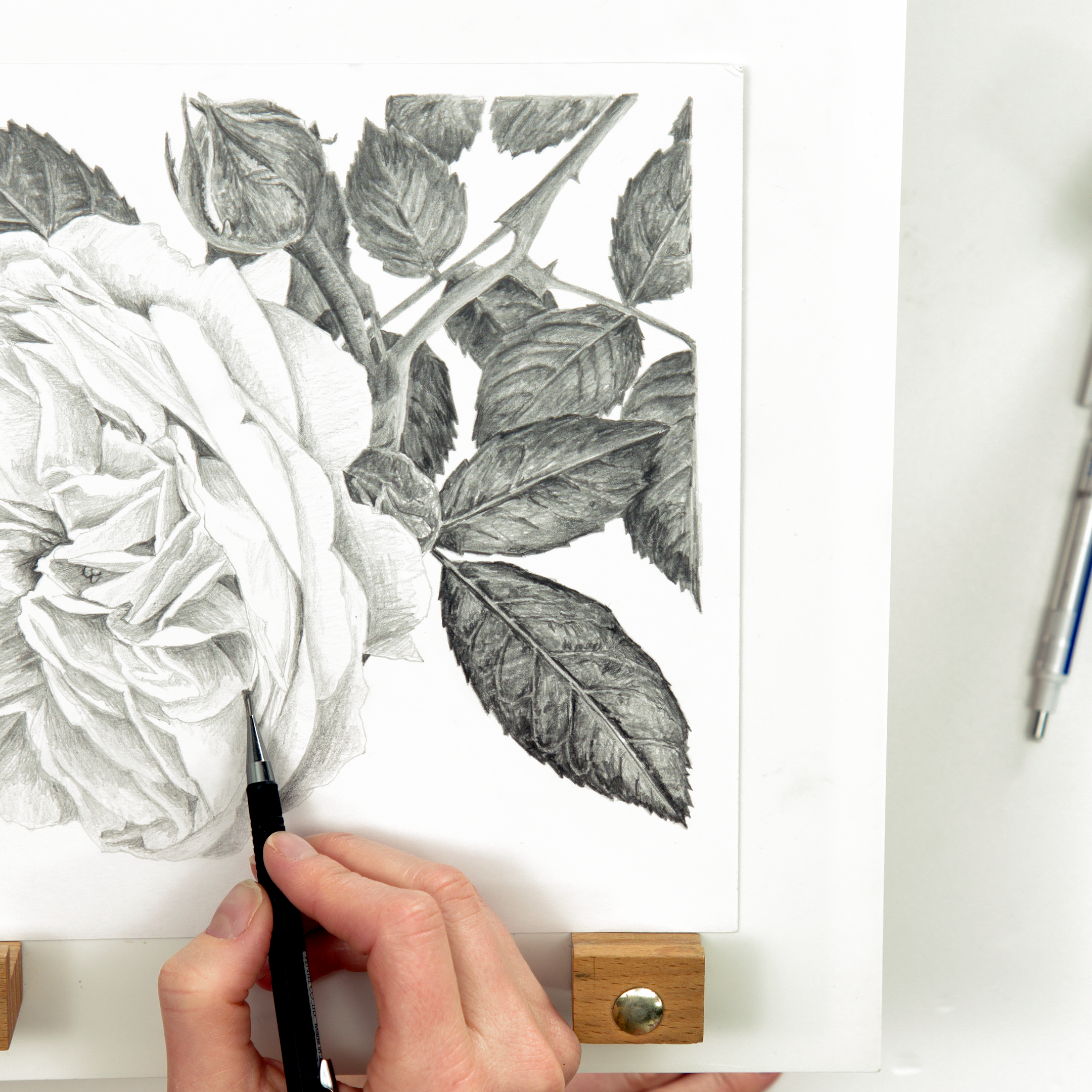
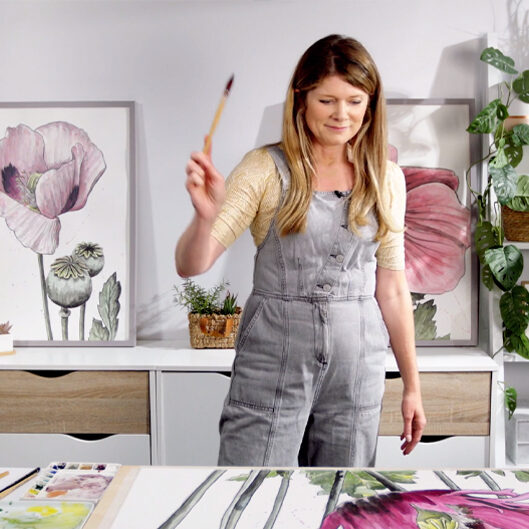
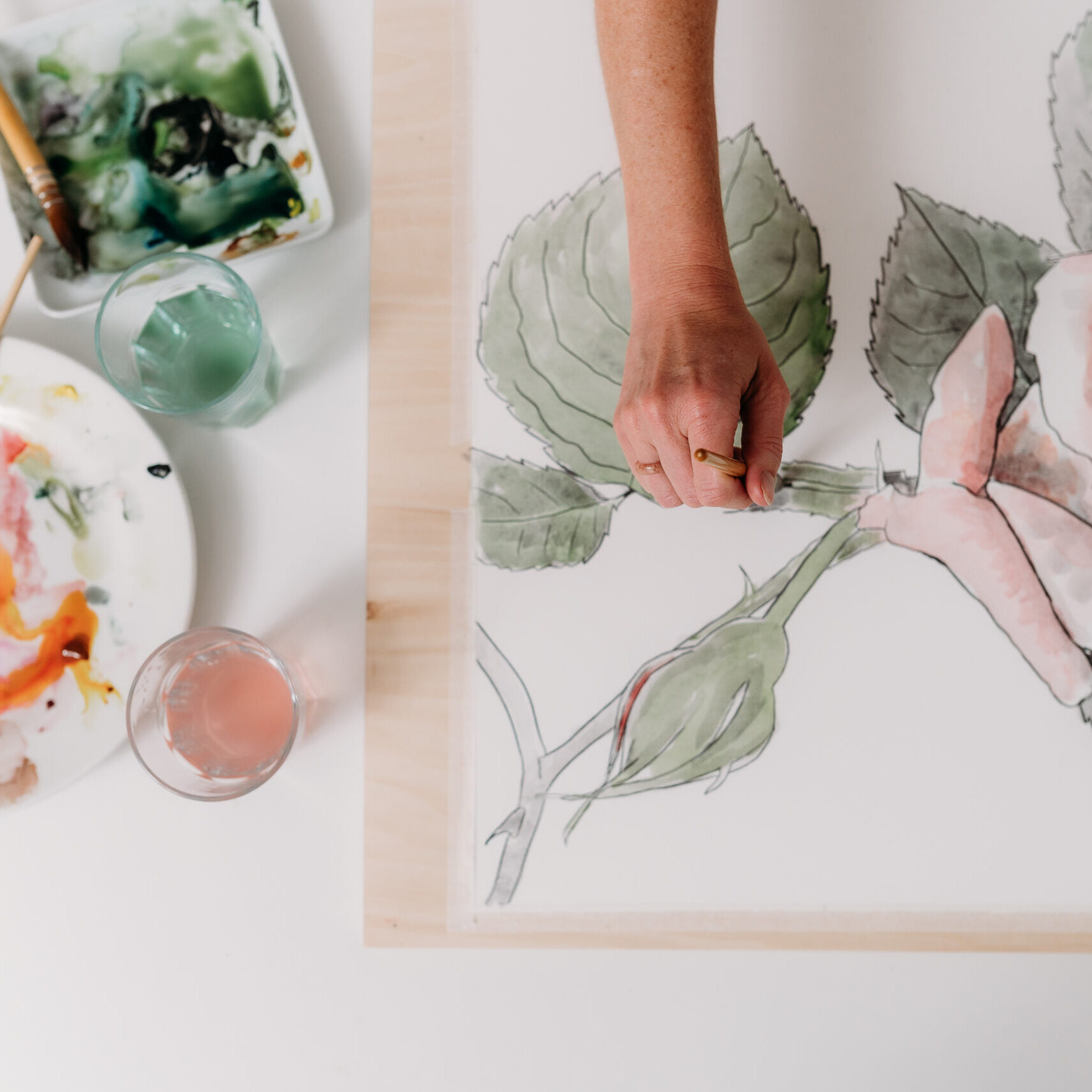
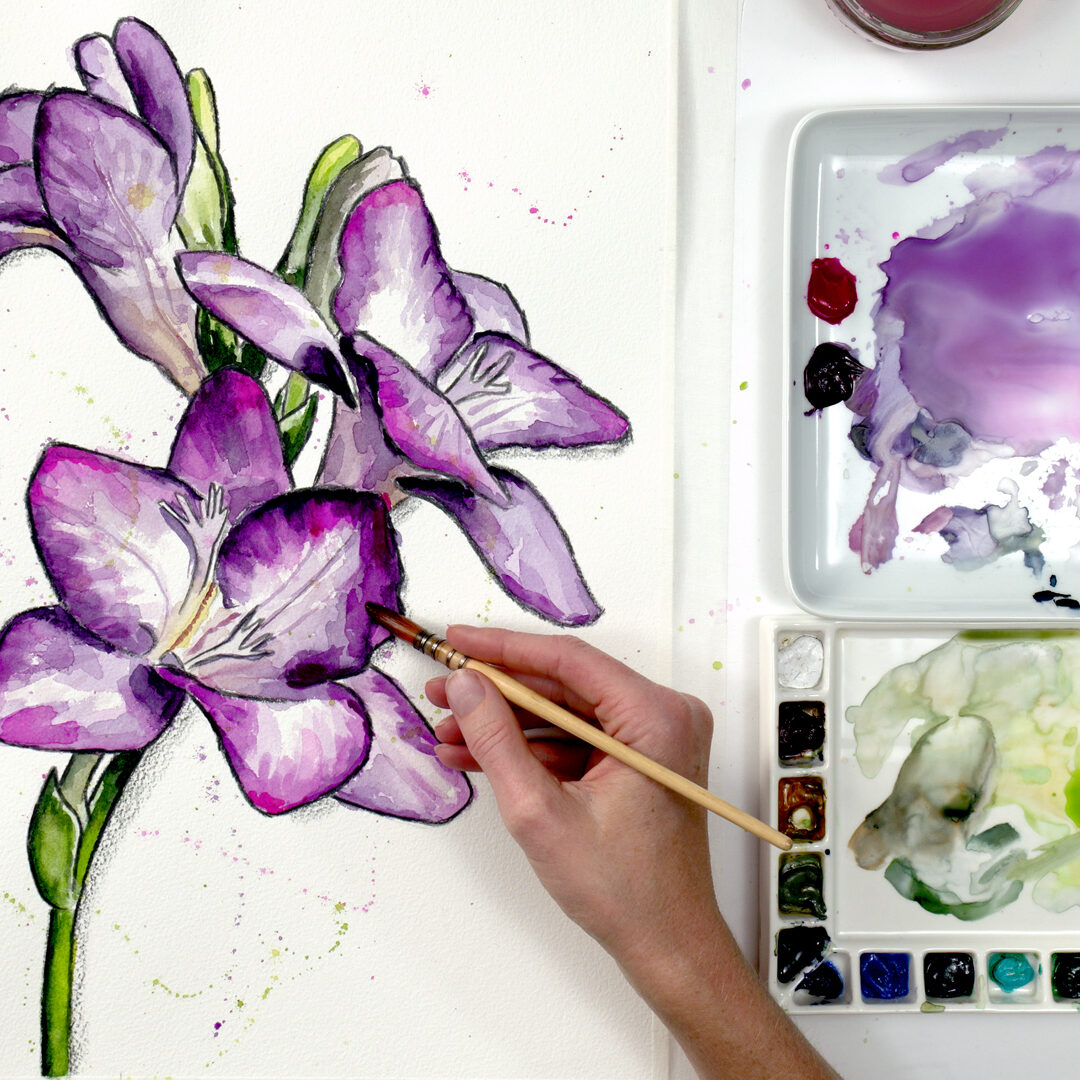
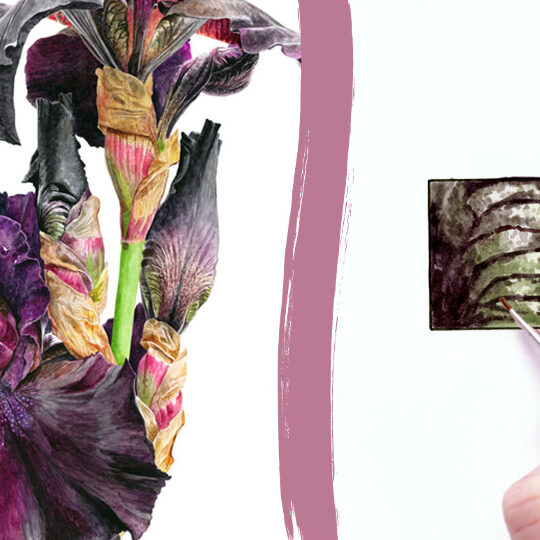
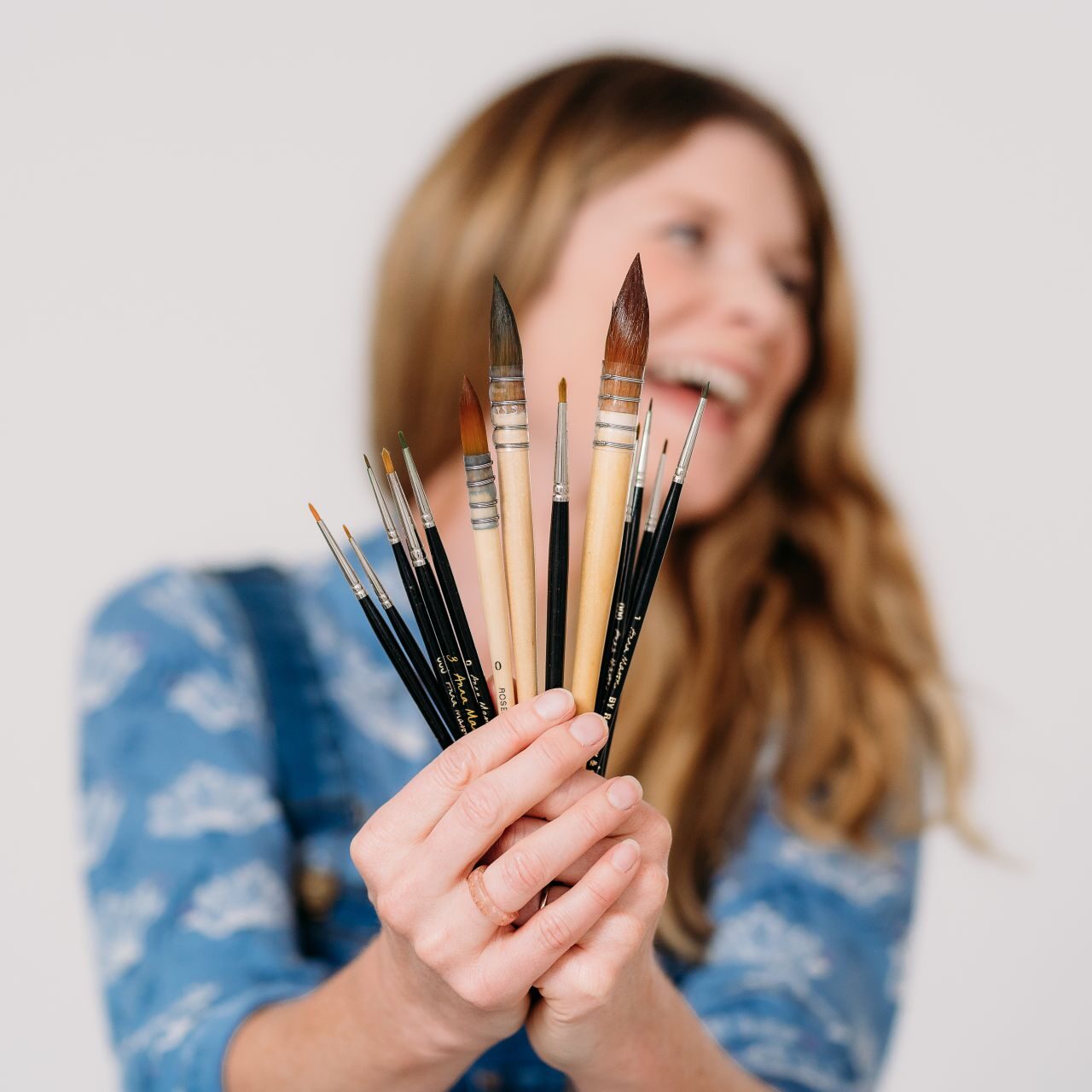
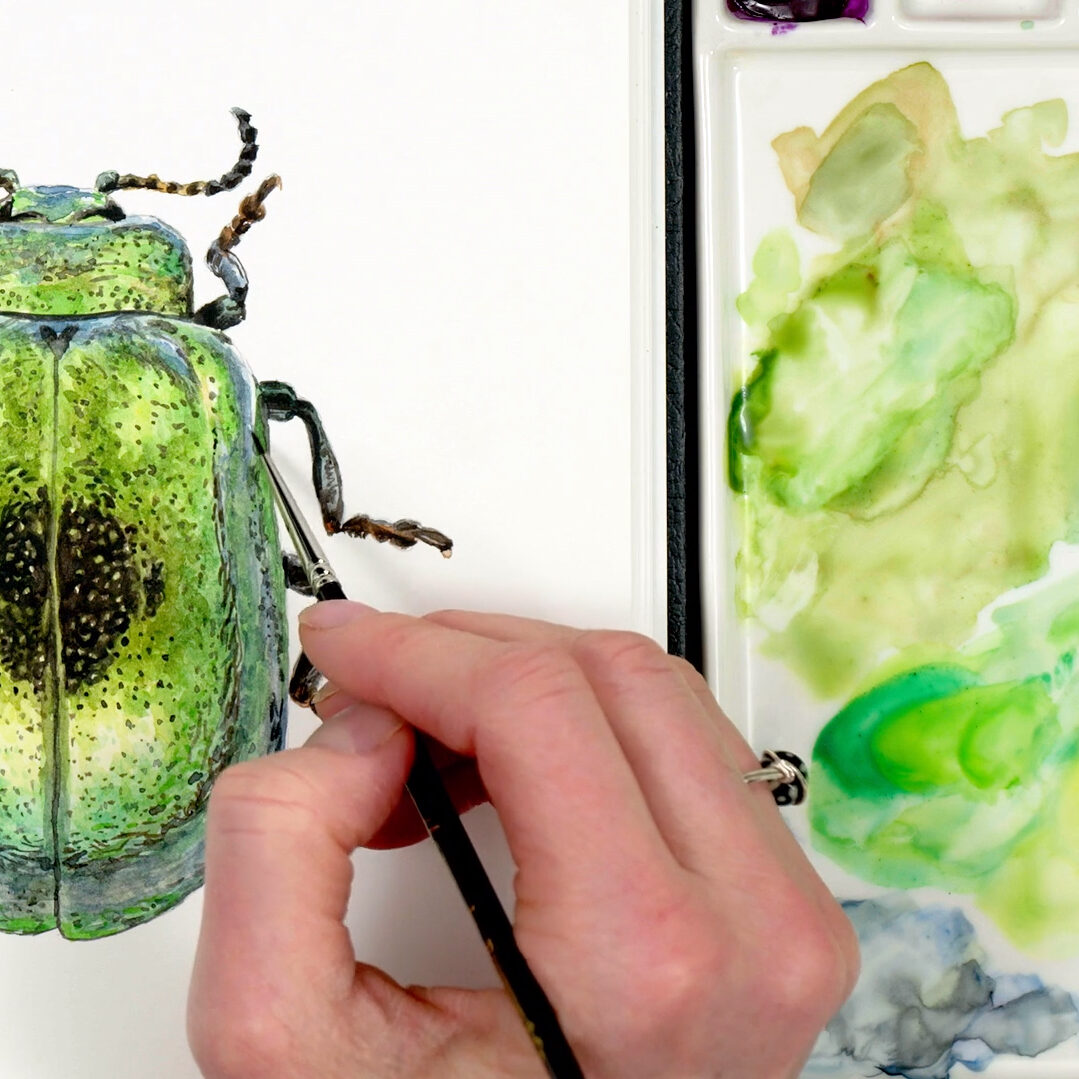
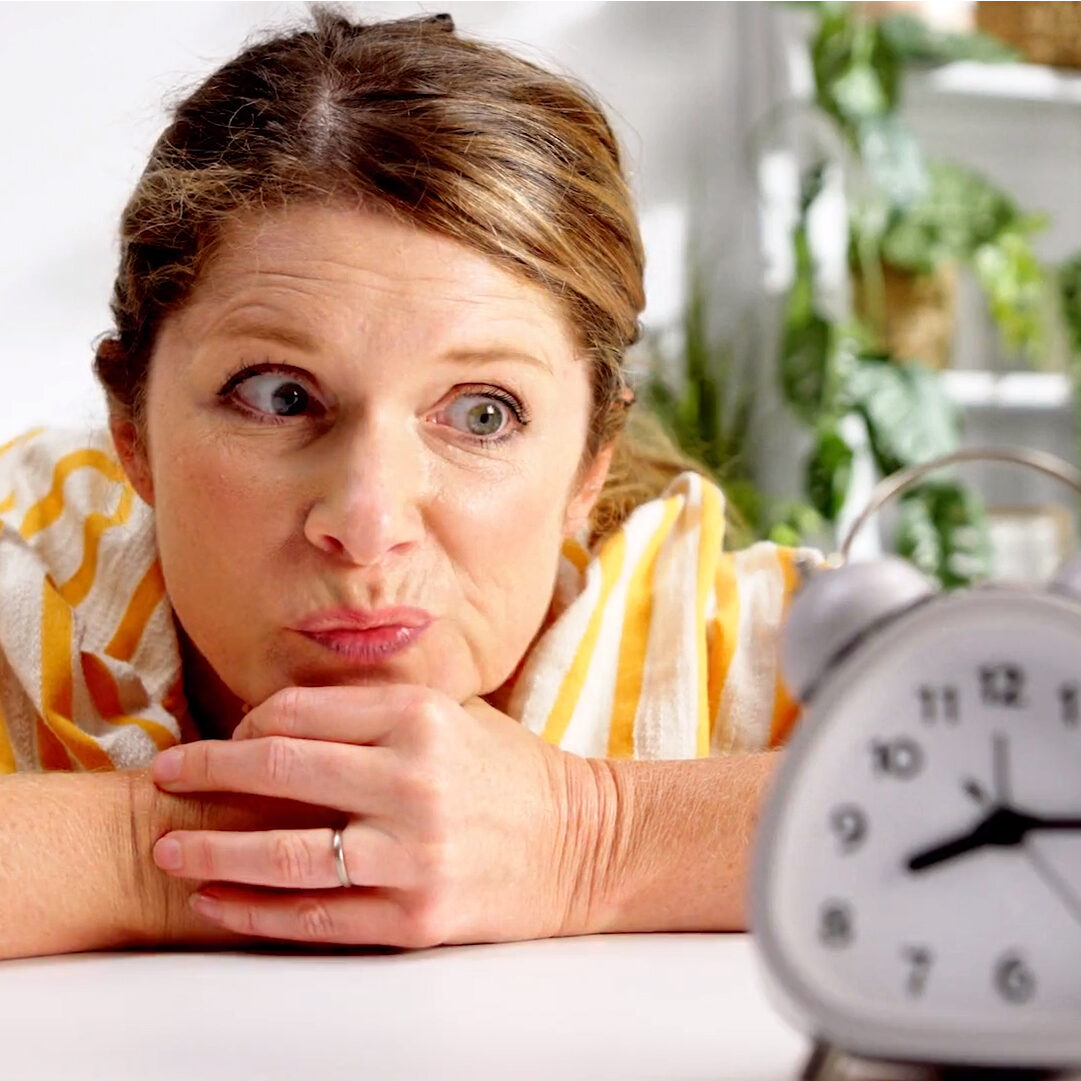
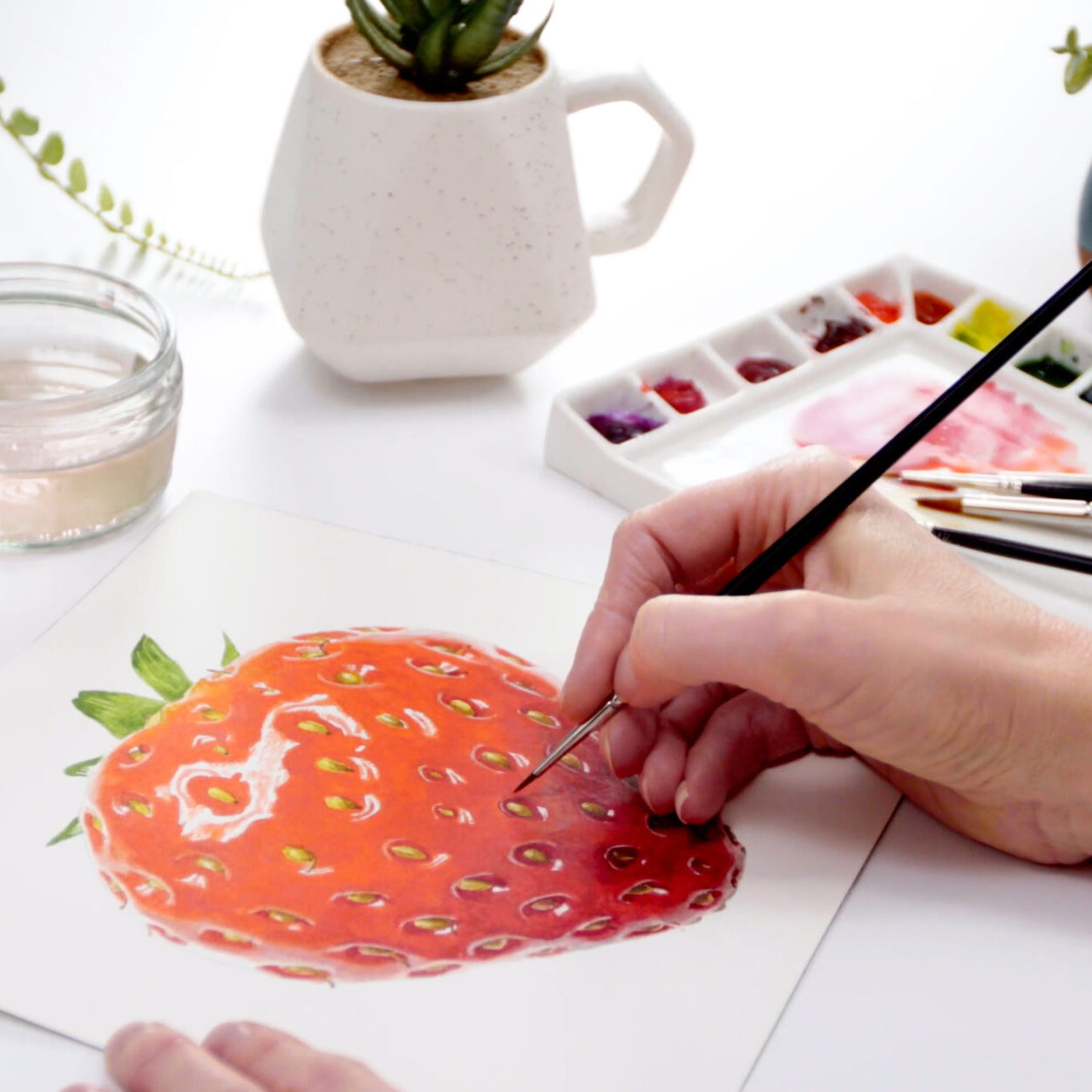
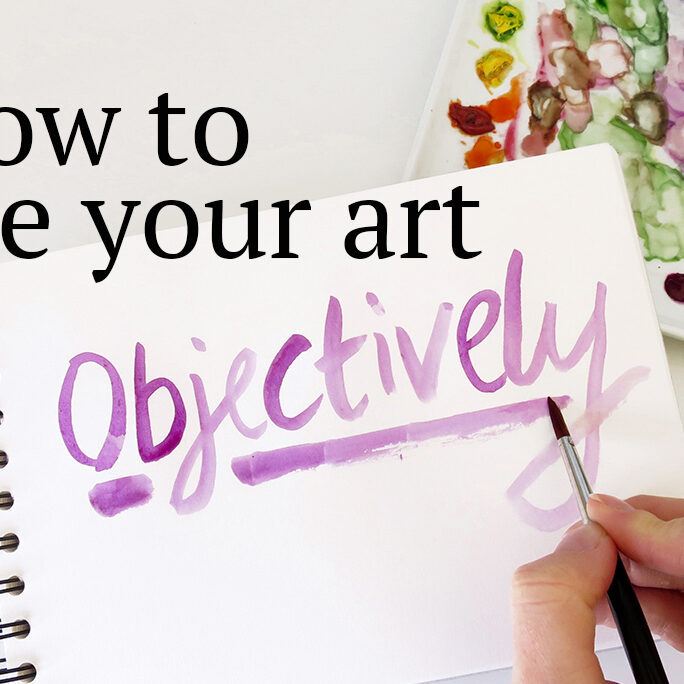

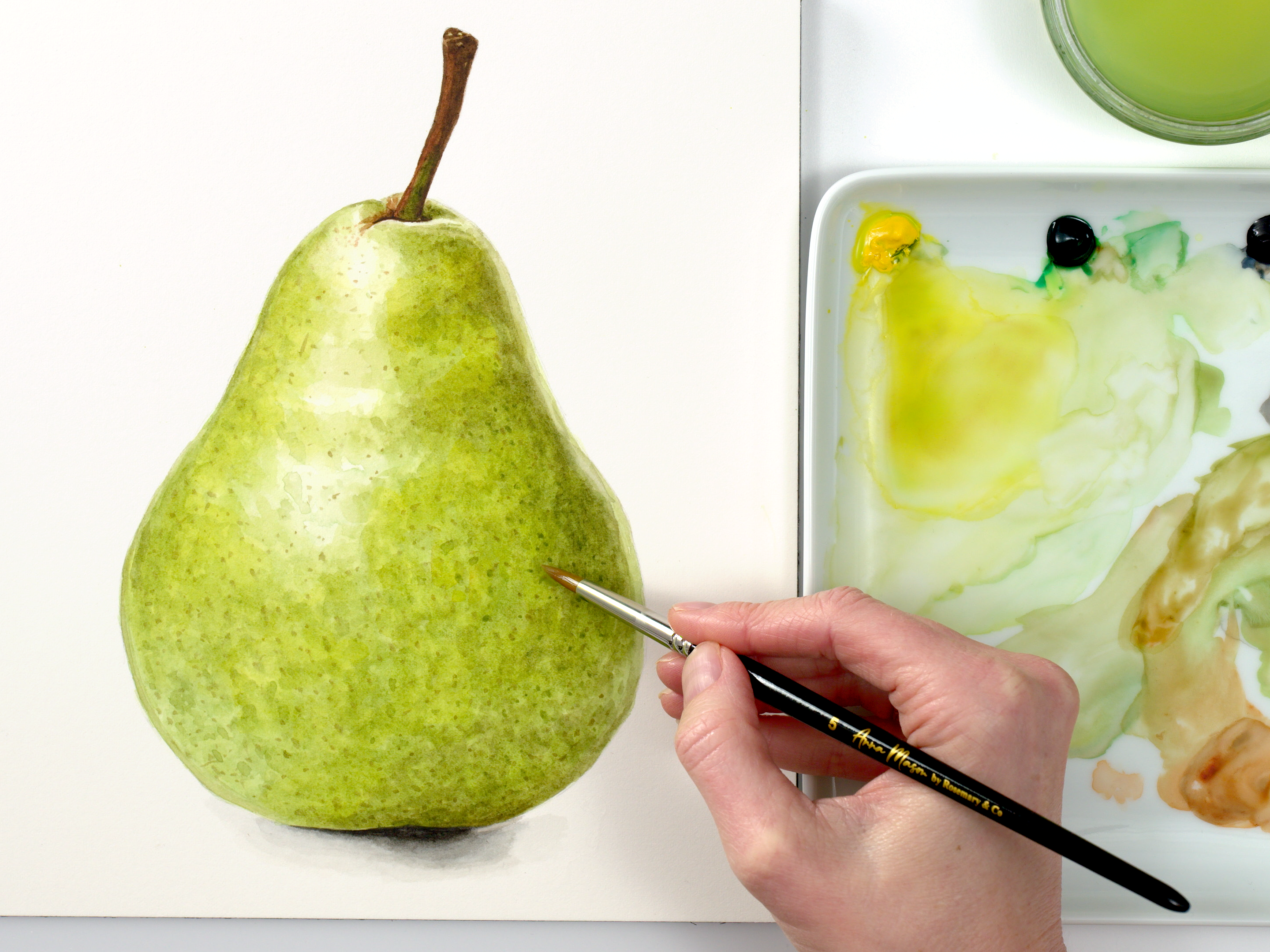

Anna, Thank you, Thank you, Thank you! This is so helpful not only the change from “critique” to “appraise” but the check list 🙂 I want appraises when I post, I want to know what others see that I’ve missed or could tweak. And this check list will be handy for taking first steps with myself.
thank you! another example of what makes you and your school so wonderful. 🙂
Fantastic advice and idea! I love the PRAISE portion! Always easy to be negative and hard to be positive!
This is so helpful, particularly the emphasis on keeping it positive. The checklist is very useful and I will certainly use it to evaluate painting that I though we’re Ok but needed something more. Once again thank you so much.
I like this approach. Being new to water colour I welcome appraise from others. Actually asked for it on over painting. When painting I set out goals. Did i get some tones and hues correct etc. Most of all its knowing with practise the rest will come. I post my pictures as a beginner and I am learning to be confident when sharing my work. Thank Anna love this approach. Looked for classes like these for a very long time.
I wish a couple who came to visit me years ago had read your important and wonderful piece. I showed them a selection of my botantical paintings, hoping for some feedback along the lines you suggest. However, what I got was ‘You need to take a leap’ from the man and a nod from the woman. I never forgot what he said and every time I went to paint, his arrogant voice came into my head. By the way, the woman was a highly skilled botanical artist! It took me years to get back to feeling that I could improve and to work out what a ‘leap’ actually meant. It was only when I began to shout ‘Take a leap yourself’ (and often worse!) before I sat down to paint that I managed to recover. These days, I’m not half bad!
Thanks for sharing this Louise – your experience is not uncommon but I am really pleased to hear that you did managed to recover from that comment and continue to improve!:-)
Lots to think about. Thank you.
Strangely enough, the person who shut me down was my mother.
She had got into the Royal Academy as a portrait painter but when I tried as a teen-ager to do my very best to impress her she’d say, “I don’t think so, you don’t have the right idea at all”
I felt then that I could never paint like, or as well as her, so I didn’t paint until I met someone who told me to paint like me!
I now work as a painter and teach botanical art.
Thanks for sharing that Anna. Our parents have such influence on us and I’m not surprised at all that this comment shut you down. But I’m very pleased you took on board that advise to be yourself and paint as such.
I had a very similar experience. My father was a landscape painter. At a young age I asked him to teach me to draw and paint. He sat me down and gave me pencil and paper and asked me to draw a vase on the table. When I showed it to him he said: “forget it, you have no talent”. That was that! I never tried again. Nor did I ever draw or paint. Till I was 65 and was offered a watercolor painting course. I loved it and my efforts were much better than I imagined. In the last 10 years I have even sold some of my art at the local gallery. But mostly I paint in my travel journal and I also keep a perpetual journal of local plants and flowers. It has given me great satisfaction.
When I was 58 I went back to school to get a graphic design certificate. A common component of the classes at the museum school included “critique” and I thought I would just have to knuckle down and bear it. Turned out that it was one of the best ways for me to learn. I made the decision to not be defensive and just learn from what was being said. Now when people tell me that something I have done is lovely, or beautiful it feels good, but I don’t learn anything.
That’s a great point about not being defensive Kelly. Works beautifully if the ‘critique’ is also given in a positive spirit.
Great post and sentiment!! Thank you!
Thank you for the great checklist. I had a nightmare critique in my first college class. The professor said he hated my photograph and thought it was silly and overdone. It was shot at an unusual angle. I almost cried, I was 36 and just going to school for the first time and I could have melted through the floor. My soul felt like it had died in that minute of time. But seconds later he asked why no one stood up for my work which was good. I realize he did it as a teachable moment but I’ll never forget how I felt like less than a person for that time.
Thank you for sharing that experience! It just shows how very personal our creative work is. And that teachers should be more sensitive to how their students might be feeling, even if they are wanting that teachable moment! 🙂
This is such a wonderful approach! When I was in the 8th grade I did a painting that I was really proud of in art class. It was getting tons of positive attention from my classmates. However my teacher seemed to think all the praise was a problem and he made a point of telling me that there were a bunch of problems with it and not to let all the praise go to my head. I was totally crushed. Thankfully it didn’t stop me from making art but it certainly made me feel awful and put a dent in my confidence. The appraisal system should be something everyone is well versed in! I’m going to share this!
Thanks Andrea, and I’m sorry to hear about that teacher feeling the need to take you down a peg! Not helpful at all. I’m glad it didn’t have even more of an effect on you.
WONDERFUL blog Anna, thank you! I think this method works in every aspect of our lives ;c). My own mother was similar to Anna Corns, in telling me that anything I did was garbage, maybe because my older brother could draw well, before he could walk (seriously!). In my younger years, that did indeed affect the way I went about doing creative things. We ALL want to please out parents. Knowing that we are always our own worst critics, and being of an age where I don’t care to please my parents, I do not create for other peoples enjoyment but for my own….that may sound selfish, but it has allowed me to create and CHOSE to learn to get better, which I aspire to do, without the shackle of getting other peoples approval. When that approval does come, it is so much more valuable to me ;c).
People may not remember what you say, but they WILL remember how you made them feel
I received an awful critique towards the begining of an adult Art degree course over 20 yers ago, I really thought that I had stretched well beyond what I habitually produced but I was struck down by very harsh criticism. My work was described as being like something they sell in Woolworths! I saw her work recently in an exhibition and it wan’t that dissimilar to what she had slated. I lost all artistic confidence back then, and I have not done anything artistic since, she destroyed me. I could not understand why someone had to be so nasty and I still don’t.
The problem certainly lies with the person giving the critique, not the person on the receiving end. Not that that knowledge is of much use when your feelings have been hurt, but it is true. I hope you regain the motivation and confidence to try again Suzanne!
Hi Anna. Thank you for your words of wisdom. In my case I’ve had varying critiques from school members as well as local folks. I’m not shy about receiving a critique at all. The most helpful ‘critique’ has come from fellow school members. Especially those members who have been around long enough to see the different art pieces that I’ve attempted.
I feel fortunate to have found school members who are mentors for specific topics such as using charcoal, field sketching, or even landscape painting (which I really want to work on). Therefore I like the idea of having an ‘art buddy’ who is around for the long term. Critique is useful when the ‘art buddy’ understands what you’re trying to achieve, and if the piece isn’t perfect they can note where it went right . . . and wrong as compared to my goals and not just their view.. It’s funny, but one mentor printed one of my paintings and then scribbled notes on it and then emailed it to me. That appraisal was possible because my mentor knows I want to strengthen how to paint light and shadow. So while it sounds extreme that ‘appraisal’ made me a better painter, and I love it.
I love the idea of an appraisal rather than a critique. Following the rules of a ‘sh*t sandwich’ makes perfect sense!
My nightmare critique was brief but still stings all these years later. I was in college working on a large ink drawing with intricate details. I came across my drawing professor in the hallway and excitedly asked her what she thought of my work-in-progress. Her only reply was to wrinkle her nose up in distaste and walk away wordlessly. I just stood there, stunned, hurting to the core. Never did finish that piece.
I have always asked for critiques since I started dabbling with surface pattern design 10 years age. I always used the suggestions for change as a learning experience. Sometimes I was able to embrace most of the suggestions, though sometimes I wasn’t ready to use the digital tools I needed for the edit.
For one design I embraced a lot of the suggestions to improve the design that I entered into a Spoonflower contest (now called a challenge). I was overjoyed when I placed 20th! Funny thing was many of those that had made the suggestions for improvements were upset that it didn’t place higher. All were members of a critique group on Flickr’ that is not longer active. Many people don’t like to give advice, I guess. Appraisal is a better word. May I share a link to this for other artists?
Absolutely, please do share this post with anyone who
you think it might resonate with!
I had a boyfriend tell others that my work didn’t show him anything. Had to have been about 20 years ago. I was destroyed. I have just restarted again. Not doing much yet, but I am sure I will be soon.jJean
Thanks for the info in your post. It gave much food for thought. One can grow through appraisal of one’s work. Great post.
Great post Anna, a wonderful and thoughtful way to approch constructivly looking at a painting. A good way to learn what area’s or techniques I could learn a bit more about to improve my painting skills. I find it very helpful to have constructive appraisal, when I post a painting. It is difficult for me to tell if I am being patronized by the comments such as “Beautiful, or Great”, of course these are nice but not very specific. It is helpful to know the colors I used are lovely, vibrant, complimentary, etc… The paint blended nicely on the petals or stems, wonderful reflected light on the fruit. Or on the constructive side, “have you considered adding a bit of a shadow to left side of flower, bird, dog or lifting some color will bring it in nicely”. These are just examples that I find helpful and it fits just perfectly with your “appraise” commentary. Thank you.
Yes, years ago I entered a gallery art contest. The judge used a swear word when she came to my picture. in front of everyone, artists and guests, told me i should not have done my picture with the oval around it, and that it should be larger. There had been no rules on width or length. She did not even critique the painting!!!
I was really discouraged after that. However I entered it in the local fair and won a blue ribbon.. So that helped me want to keep painting.
Thank you for your helpful emails.
By the way I will be 83 in May and still painting!
Praise not criticism, that’s nice.
I joined my local artists society and go to the still life group every week.
There’s no teaching but people are happy to comment. I learned early on to put my ego to one side and just accept what they say as being well meant.
Everyone in the group is trying to do something different and we don’t always understand what each other is aiming for. Once I told someone I was only trying to paint reality and he looked very sceptical.
I realised then that everyone in the group is doing that. The difference is in what we all mean by reality! He’s trying to be Cezanne, but I just want the objects to look 3D, with no distortion. It’s all good.
Really helpful and positive post Anna – thank you! . As a grandma I’m always being asked by my little ones (and not so little ones) to ‘have a look Nannoo’ ‘what do think grandma’ ? I realise and understand the great importance of striking the balance between ‘praise and honesty’ so important in early years.
I’m my biggest c….c and it takes a lot to quiet the ‘oh so analytical perfectionist’ voice inside! But I my heart , I know that if I have given of my best, learned as much as I’m capable of at this point, then it’s an honest effort and my best at this point.
So I’m with you Anna, be kind to yourself, be fair, be honest, and don’t be afraid to ‘show and tell’ . If anyone shuts you down,, ( I have a friend who openly tells me I’m brilliant, but will then in the same breath say is there anything you can’t do?) my reply is… plenty!!!
But I’m always going to get up and get on!!!!!
Good luck to everyone, don’t be afraid, just (in the words of our wonderful Mentor) relax, enjoy, and have fun!
life is too short not to!! X
I’ve never been good with ‘harsh’ words. At art college in the middle of my first life class, at the age of 17, a tutor came along and drew a big black cross through my work. That was 50 years ago!! and it’s as if it was yesterday. Nobody sets out to make a mistake , we all try our best,
When I signed up for this class I just thought it would teach realistic watercolor painting. This I desperately wanted to learn. As it turns out you are supplying so much more than that. Thank you.
Sometimes no appraisal is worse than a negative appraisal. I’ve had a friend say “you always were the artistic one” (not an appraisal). Or there was no comment at all (very inhibiting). After pouring time and energy into a work we all need some form of recognition/assessment. Probably our appraisers need some tips in the appraiser process, and we can give that to them by asking them specific questions using your list of Things To Consider when they view our paintings.
My ex husband stood behind me as I painted a commissioned piece, a client of his not art related person with his arms crossed and a sour expression on his face. Then he turned and left the room. I was an emotional wreck and did not want to puck up the brush. I did finish it, but not as I had hoped. That disappriving stance and expression killed the joy.
Appraisal is my new favorite word!! What a paradigm shift. Sh*t sandwich…crack me up! Reminds me not to take things too seriously but relax and grow from the process. After all..a little fertilizer can go a long way! Planning on printing this out and hanging in my studio. Thanks for this.
I have an art group I meet up with every two weeks in a local cafe. We paint or draw and chat. My ex-watercolor teacher is there and every single time I go she tells someone that what I do is illustration. I feel so judged when she says that. She is a fantastic artist, and her style is more lose. I do not like to be pegged in this way, and I never know how to respond when she announces to others what type of art I do. This isn’t exactly “critique.” Frankly, it feels more like micro-agression!
I remember having an experience of this in the past too – people at a party pointing out to me that I was doing the ‘craft’ of illustration. It was super passive aggressive and they were actually trying to tell me I wasn’t an artist. I’m actually not hugely identified with the idea I’m an ‘artist’ but in the conversation it was clear that it was meant as a put down to make me feel crappy. I was just beginning to have success with my painting at the time and I don’t think the people making these comments liked that for whatever reason. I think next time she does it you should say ‘actually I’m not illustrating anything, I’m painting for my own pleasure in a detailed and realistic style’. If she pushes it, tell her the way she describes it comes across as a put-down. Don’t take it from her anymore! Good luck.
I think you are right. Everyone has their iwn way of painting, like your signature.
Thank you for some very valuable information!! My difficulty is not in accepting suggestions but getting them. When I post a picture to this site I always leave a comment wanting others to offer suggestions and I don’t seem to be able to elicit any. In particular these are paintings I’ve posted in “All other Paintings”. Do I need to do something differently?
Critiquing (I have no hang-ups with this word) is a great way for me to see what I’m missing and where I need to improve. Anna, you are my favorite instructor for watercolor (I’ve had 3 in the 3 years I’ve been painting. You for 2 1/2 of those years.) Thank you for helping me grow and develop as a painter. I’m looking forward to continued growth.
This is great Anna. I, as someone above suggested, will print out the list of what to look for. The only way to improve and move forward is to get the feedback on what was good – keep doing it- and what needs to change. Looking forward to new and improved feedback.
Anna, one of the things I love most about your teaching is how clear it is! I’m printing out the checklist and keeping it by my side so that I can access what needs to be done while painting. I think I tend to gt lost in the details too early and miss the big picture..so to speak.
I’m REALLY looking forward to the new special area for feedback. I thrive on all the positive feedback I get but I want to keep learning and improving and I need constructive feedback too.
Thank you Anna! I have never felt skilled enough to “critique” any other members work. Sharing sincere encouragement comes easy but to “provide a judgment, especially a negative one” as the definition describes is not anything I would ever share. Your suggestion that we “appraise” gives my heart permission to sandwich specific considerations between encouragements. MY EXPERIENCE: After painting the owl for my husband, family members began to ask me to paint something for them. However, their requests were VERY large (48×60. 121.9cm x 152.4cm) abstract pieces. I was honored to be asked by two different loved ones and was so very foolish to try. My mind does NOT see abstract. I see, and enjoy painting detail and striving for realism.. I spent six miserable months trying to please someone else. I was so discouraged that I simply quit painting for a while. My husband continued to encourage me until I returned to painting what pleased me. I am excited to be building my skills, hopefully to be able to reach the point I feel ready to step into painting of one of my own photos. Thank you Anna.
Thank you Anna for this blog. I have received lots of varying responses from people both good and bad. Although an appraisal, or critique is one and the same thing, I agree that an appraisal sounds so much better. I like how one art buddy (from the art group to which i belong locally) put it, ‘We can always find something good to say about a work of art’. The fact that you give an example of saying two good things, sandwiching the problem in between, is so good. I also like the check list provided here as something to take on board when assessing ones own work. I too am looking forward to the new special area for honest feedback.
Everything I do is detailed, whether it be colored pencils or watercolor. I love detail, and I love your paintings. I once had an art teacher who made me the butt of classroom jokes about my detailed paintings and me being OCD (obsessive compulsive disorder). I went along with the jokes and teasing, but what really stung was when I asked her a question about technique and she sharply responded, “Why do you want to know that? You don’t need to know that!” I then knew it was time to find another teacher, which I did! I believe that to improve or grow you have to avail yourself of all opportunities – I learned what I could from her and moved on.
I’m really sorry to hear about that art teacher Marilyn. It’s a story I’ve heard so many times- that detailed work is considered inferior. It really is a closed-minded approach and can be so discouraging. I’m pleased you learned what you could and moved on!
In Junior High School (7th grade) I had gotten an oil painting set. Easel and all. I was very new to art, but had a class in school. I painted a landscape and brought it in to show my teacher. I have to admit it really wasn’t good, but I was looking for guidance. He looked at it, laughed and wanted to know why there were backed potatoes in the sky. He didn’t offer to help fix it or explain what to do differently.
I didn’t paint again or take another art class until 2016.
In fairness, the clouds did look like baked potatoes, I don’t think he was a very good teacher. I lost a lot of years painting. Now I paint watercolor.
I love everything you said. I had to teach art to grade 7 and 8 students (12 to 14 yr olds) and you always had to find the positive for them. Then when you had their trust you could give some criticism or usually suggestions. I try to look at my own work the same way. A little trick I use that helps me is to take a photo of the work and even put it up on my computer screen so I can “live with it” a bit. It really helps you find those little details you missed. Taking a photo seems to give you that distance from your piece so you can look at it with different eyes
The wonderful thing about being an artist is that you are NEVER done improving, changing and growing! This is very daunting to beginners that think great artists just step up to a canvas (sheet of paper) and paint some fabulous masterpiece. When I first started painting I was amazed at my professional artist friends that might have pages and pages of thumbnail sketches, color swatches, several preliminary paintings before they finished a piece. Welcome criticism it will only make you better. BUT, it is also important to consider the source, some critics have no expertise and just don’t have a clue.
Anna, thank you. You really couldn’t have timed your advice better. I have admired your work for a few years and have just enrolled in your online school. I finished my first painting and went to show my family feeling very proud of my efforts. Suddenly they had become art critics, they just suggested how it could look better. I felt terrible as I just wanted some praise of my hard work. I have not felt like carrying on for a couple of weeks. Now after reading your blog I feel inspired to get back involved as I so want to improve. I have looked at my work and taken onboard what they said, even if I don’t particularly agree with everything they suggested. I am a 75 year old, very amateur watercolour painter. My Art teacher, so many years ago, laughed when I said I would like to go to Art College. He was probably correct but really could have been nicer. It took me at least 40 years to pick up a paint brush again.
Thank you Anna….this is, to me, a better approach as we are influenced by words used to describe an action. I have been fortunate to have predominantly positive and helpful appraisals of my work.
I once worked at an art institute and was taking some acrylic classes outside of class. I was happy with my art but my boss (a businesswoman but not an artist) told me how immature and pathetic my work was, and how I shouldn’t bring my art to work as it wouldn’t make her look good. I told her she hadn’t studied art so her knowledge too was limited but she insisted she knew better. I was so devastated, that I didn’t paint for 2 years, after which I decided to paint no matter what because I enjoyed it so much! Now I love to paint and I have improved and thankfully I no longer work for my critical boss. I’m so grateful I can paint and so enjoy it. I dismiss anyone now who criticises my art especially people who don’t have any experience in it.
Thought I would share my recent experience with criticism as I think it has been my most important lesson ever.
Last September I entered a painting of a cauliflower into a local exhibition.
It’s a really good painting, I was really proud of it. People were asked to vote for their favourite piece in the exhibition and nobody would vote for mine.
Why? Because as everybody said ‘it’s good but I hate cauliflower!’
People’s opinions of what we create has so little to our art and everything to do with their own view of the world.
This realisation has given me so much freedom to create.
Anna, the appraisal system sounds a wonderful idea. I have never had a piece of work formerly appraised but l am a very hard critic of my attempts. The appraisal system will help me to look objectively at my work and that of others and hopefully will banish the sense of defeat l feel when l know a work is poor but don’t know why. Thankyou so much for all your efforts. I have only been in the school since December but l have learned so much already and my work is improving.
Wonderful post, as always. Thanks for sharing !
I am a Brazilian journalist and I would like to share a few words with you. My English is not fluent, but I will try with the help of Translator. I have been painting for 14 years and watercolor for 8 years. I suffered a lot with criticism for not painting watercolor like other artists. I continued to try my way, even with criticism, criticism, criticism. Today, I continue to paint how I feel and like. It has evolved a lot, but trying to be yourself and painting as you believe is a difficult path. I’m glad I’m persistent and never gave up. Thank you, Anna for the beautiful words! My Instagram is cleusavieira.aquarelista.
Anna, thank you for this blog post! As someone who is hyper-critical of my own work it is so helpful to hear how to start being realistic about my work. It is such a growth process and I have to remember that.
As well as your on-line school I am in a watercolor group here at home. I am sure this will be very helpful to show us how to “appraise” each other’s work.
Thanks again.
Best, Janet
its good advice I have been painting for a while now in different mediums sold a few at art exhibitions, but need to get back after splitting from wife it came very hard and not done anything since the split, but did do a pencil drawing for a friend, so at this time not sure what I want, do use grids and know how to make drawings right, its just getting started again but like your advice
Anna, love your work. Although mainly working in oils and dabble with acrylics, I occasionally break out into watercolours. As such, I have found your technique extremely helpful. A tip from a teacher was to take a photograph along the way and use it as a “third eye” for appraisal. It is quite surprising what the camera picks up for improvement.
I think the trick is to try and separate in your own mind helpful and unhelpful appraisals – then take on board the first and forget the second. Don’t forget that Queen Victoria is said to have thought that the painter J M W Turner was mad, but history has shown that she was not much of an art critic. But we also have to accept that if we choose to exhibit our art works publicly, the reality is that not everyone is going to like our work. However, if the adverse comments tend to outweigh the positive, then we might want to reconsider what it is about our paintings that does not appeal and make the appropriate changes if we want to continue exhibiting.
Thank you Anna for doing this new section of the site. It’s really needed and honestly one reason I’m not as active here as I would like to be… There is a human missing piece of interaction in the learning process. I think this could really help fill that gap.
I have been on the receiving end of very bad attitudes from instructors and peers when it comes to critiques. It used to really mess with me and I quit art over 10 years, thought I didn’t watercolor paint then.. Then, though my self-growth process, I worked through that. I used to get REALLY get offended. I don’t so much anymore, if at all, because I know it is through their filters, not mine and I don’t have to make their filter mine or me.
However, there is one person that I really get upset with when they are unreasonable with the critiques because I know they are not objective.
Me…. hahaha Still working on that one
Thank you, Anna. This is great advice and also greatly appreciated! Have a happy
What a wonderful new idea, Anna! I definitely love the transition from “critique” to “appraise.” That is a brilliant concept that I’d like to suggest to other groups (writers, sculptors, etc). I’m all the happier for joining your school with this new approach. Actually, I finished the CHERRIES last week, but have not posted them because I’m really not that happy with them. I’ve left half the page to do them again, but now am trying to work up to it. Well, okay, they looked a little better coming back to them the next day, but they are still not that great. Was thinking I’d send them to my accountability buddy, but now I’ll post them to the school as well.
Many years ago I was getting into calligraphy and approached a local art group about joining to put things in their gallery. I was bluntly told that what I was doing was a “craft” and not really “art.” I never went back, and I still like doing calligraphy too. One of my goals in the school is to incorporate some calligraphy into my art.
I had finished a project in 8th grade that my art teacher thought was absolutely horrible. I actually thought it was good and my mom gave me praise for it so when I turned it in to my teacher I was devastated that he gave me a failing grade. He also said I should not waste my time taking any art classes in high school. I signed up for every art class i could in high school and joined the art club. I started my own graphics business and when I retired I joined your online school and love every minute of it. I still get some criticism, and it’s usually about how what I have painted isn’t exactly like what the subject or topic is. My painting buddy, PJ, and I give feedback to each other all the time. We also show our paintings to our teacher in another watercolor class that we take. I like the idea of appraising and your ideas to do this are great.
Thank you Anna, for your well time advice.
Wonderful information, thanks a lot for sharing the kind of content with us. Your blog gives the best and the most interesting information. I wonder if we can gather such practical information about critique a painting. Great one!!
Thanks for posting this useful information over here; I really hope it will be helpful to many to know about the critique the painting. I hope you keep update us with such great tips and information in future too. Appreciative content!! I loved reading this article.
Thank you so much for the considerate and thoughtful approach to art critiques. “Appraiser” seems like a way better and more positive way to go! I love the way you worded your ideas and I appreciate hearing them. Always starting with a positive seems to feel like the right thing to do.
Your paintings are so beautiful!!!!
Thank you! I am sensitive to criticism during my process. I began in oils, then acrylics. Then your watercolor classes gave me the courage to begin Again! I cannot Count the times when relatives of friends give negative advice– if negative is too strong then not positive. I stopped painting.. I have Lupus which equates to pain and not wanting to do anything. My doctors encouraged me but all I felt was I can’t. When someone offers an unfounded opinion it affects me negatively.
Every “appraisers” or casual ” critic — tho I want honesty == should identify their qualifications then let me decide if their critiques matter.
‘Nice flow of brightness’ is a typical representative of comments generated by the jargon of art critiques I got from a friend painter when I exposed one of my paintings on Facebook; utter nonsense with no artistic value, just to please me, a beginner in painting.